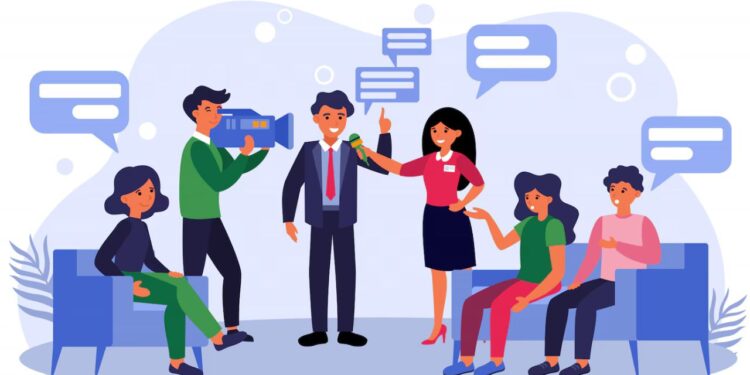Introduction
Communication is the lifeblood of human interaction, whether it’s in the workplace, at home, or online. But what makes communication truly effective? How can you ensure your message not only reaches your audience but also resonates with them?
This blog dives deep into the art and science of effective communication. You’ll learn why it matters, explore the key principles of great communication, and discover actionable strategies to sharpen your skills. Whether you’re leading a team, pitching a business idea, or striving to build better relationships, mastering the art of communication is the skill that can transform your impact.
Why Effective Communication Matters
It’s the Foundation of Relationships
Have you ever walked away from a conversation feeling completely misunderstood? Poor communication disrupts clarity and creates distance. Good communication fosters trust, empathy, and connection—essential ingredients in both professional and personal relationships.
Drives Workplace Success
From misassigned tasks to failed projects, poor communication is at the root of many work-related challenges. According to a study by Salesforce, 86% of employees cite ineffective collaboration and communication as the primary contributors to workplace failure.
Helps Deliver Influence
Effective communication is key to persuasion. Whether you’re a leader aiming to inspire your team or a marketer crafting a campaign, the ability to express your ideas clearly and convincingly sets you apart.
The Principles of Effective Communication
There’s no one-size-fits-all solution to excellent communication, but several core principles can guide every interaction.
1. Clarity is Key
Your message should be easy to understand. Avoid jargon, overly complicated language, or ambiguous phrasing that could confuse your audience. A good rule of thumb? Stick to the “KISS” principle—Keep It Simple and Straightforward.
2. Active Listening Enhances Understanding
Great communication is a two-way street. Listening is just as important as speaking. Demonstrate empathy and attentiveness to show that you value the other person’s input. This not only builds trust but also ensures you fully grasp their perspective.
3. Tailor Your Message to Your Audience
Consider who you’re speaking to. Are they industry experts or first-time learners? Is the conversation formal or casual? Adjusting your tone, examples, and context to your audience makes your message more relatable and impactful.
4. Nonverbal Cues Matter
Did you know that up to 93% of communication is nonverbal? Your posture, facial expressions, and gestures play a crucial role in how your message is received. Matching your body language to your words reinforces clarity.
5. Be Authentic
People connect with authenticity. Being genuine builds credibility and emotional connection, making your audience more likely to trust and engage with you.
Strategies to Improve Communication Skills
Mastering communication takes time and consistent practice. These strategies can help you become more intentional and effective in your interactions.
Practice Mindful Listening
Focus completely on the speaker. Avoid interrupting, and don’t just wait for your turn to speak. Instead, ask clarifying questions and reflect on what has been shared. This demonstrates respect and fosters deeper conversations.
Strengthen Your Emotional Intelligence
Effective communicators are highly attuned to their emotions—and those of others. Building emotional intelligence helps you adapt to different scenarios, regulate your responses, and create productive and compassionate exchanges.
Use Storytelling
Humans are wired to respond to stories. Sharing a compelling narrative, whether in a presentation or casual conversation, makes your message more memorable and relatable. Weave examples, anecdotes, or metaphors into your communication to leave a lasting impact.
Pay Attention to Feedback
Communication doesn’t end when your message is delivered. Observe how your audience reacts—is their body language open or defensive? Are they asking for clarification? Use feedback to refine your approach.
Learn the Art of Timing
Sometimes, effective communication is all about knowing when—not just how—to say something. Addressing issues at an appropriate time and place ensures your message is received with the openness it deserves.
Improve Written Communication
Strong writing skills are essential, especially in today’s digital age. Whether you’re composing emails, reports, or social media posts, clarity and professionalism matter. Tools like Grammarly or Outwrite can help refine your writing for accuracy and impact.
Rehearse for High-Stakes Conversations
For presentations or crucial negotiations, preparation is everything. Rehearse your content, anticipate questions, and adjust your delivery style to mirror the audience’s expectations.
Tackling Common Communication Challenges
Even skilled communicators face roadblocks. Here’s how to overcome common challenges for even better interactions.
Dealing with Misunderstandings
If someone misinterprets your message, don’t rush to frustration. Clarify with patience and empathy. Phrases like, “What I meant was…” can help you reset the tone of the conversation.
Communicating Across Cultural Barriers
Show a willingness to understand and adapt to cultural differences in communication styles, gestures, or etiquette. Cross-cultural competency is vital for global teams and relationships.
Managing Difficult Conversations
Whether it’s delivering bad news or addressing a conflict, difficult conversations require sensitivity. Start with empathy and stick to facts rather than assumptions. Focus on finding a resolution rather than assigning blame.
Becoming a Communication Pro in Every Aspect of Life
Communication skills are a form of capital—valuable no matter the context or goal. Mastering them takes effort, but the results are worth it. Improved communication can lead to more meaningful relationships, successful careers, and even personal growth.
Every interaction is an opportunity to practice and refine your skills. Remember, effective communication isn’t just about being heard—it’s about creating shared understanding.
Meta Information
Meta title
Mastering Communication for Better Connections
Meta description
Learn effective communication techniques to improve relationships, workplace success, and influence. Explore strategies for speaking, listening, and writing better.











